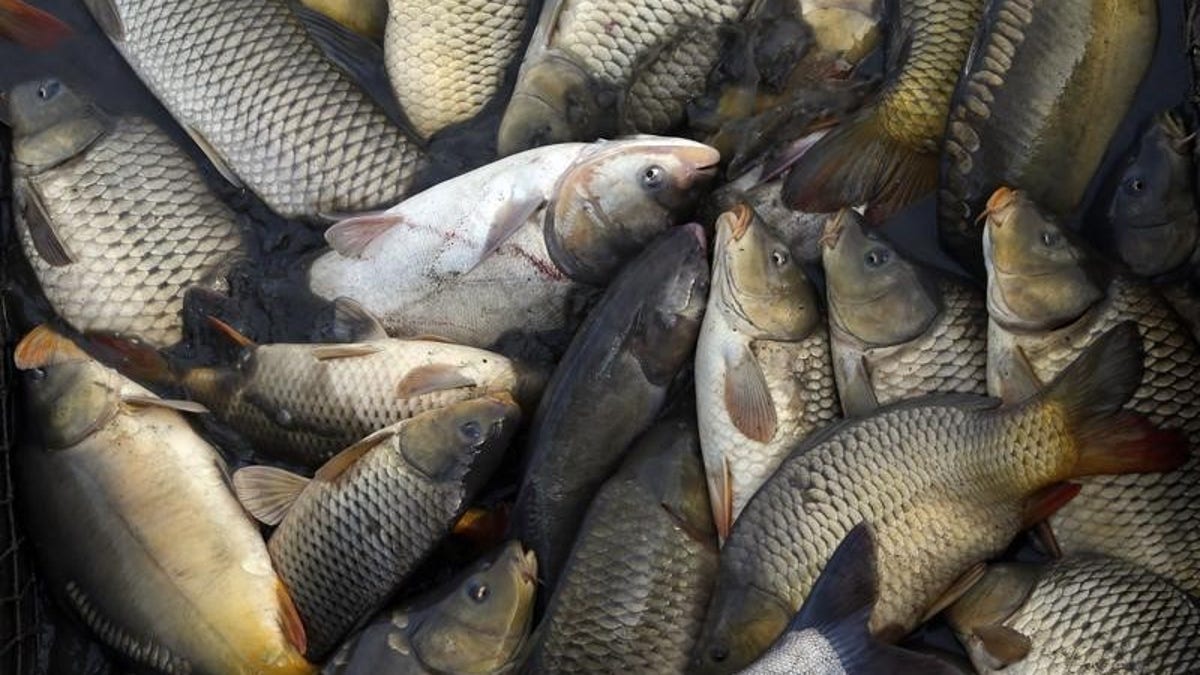
(Copyright Reuters 2016)
Pregnant women who eat more than three servings of fish a week - that is, more than the maximum recommended by U.S. health regulators - may face an increased risk of having babies who grow rapidly and become obese in childhood, a research review suggests.
Previous research has linked one pollutant in fish - mercury - to damage of the nervous, digestive and immune systems, lungs, kidneys, skin and eyes. Because of this, the U.S. Food and Drug Administration and Environmental Protection Agency encourage pregnant women to limit consumption to no more than three servings a week.
The current study points to another risk for pregnant women to consider - the potential for pollutants in fish to contribute to childhood obesity by interfering with hormone system development while babies are in the womb, researchers report in JAMA Pediatrics.
Women shouldn't avoid fish altogether, because it's a rich source of important nutrients like protein, vitamin D and omega-3 fatty acids - but they shouldn't overindulge, said lead study author Dr. Leda Chatzi of the University of Crete in Greece.
"Our findings indicate that women should adhere to current fish consumption guidelines," Chatzi said by email.
"In general, women should eat a variety of types of fish each week and avoid consumption of large predatory fish such as king mackerel, swordfish, shark and tilefish," Chatzi added, identifying some varieties that may contain more pollutants.
To assess the connection between maternal fish consumption and childhood obesity, Chatzi and colleagues analyzed data from 15 previously published studies that tracked more than 26,000 pregnant women and their children at two-year intervals until the kids reached age six.
The combined study population included babies delivered from 1996 to 2011 in Belgium, France, Greece, Italy, the Netherlands, Norway, Poland, Portugal, Spain and the U.S. state of Massachusetts.
Fish intake varied by region. In Belgium, for example, only half of the pregnant women ate fish more often than once every two weeks. But in Spain, by contrast, half the women were eating fish more than four times a week.
With moderate fish consumption - one to three times a week - researchers didn't find any association with rapid infant growth or childhood obesity up to age six.
But compared to women who rarely at fish while pregnant, women who ate fish more frequently during pregnancy had a 22 percent increased risk that children would experience unusually rapid growth from birth to age two, the study found.
At the same time, women who consumed lots of fish had kids who were 14 percent more likely to be overweight or obese by age four and 22 percent more likely to carry excess pounds by age six.
The effect of heavy fish consumption was more pronounced in girls than boys.
Researchers calculated these risks based on estimated growth trajectories across all of the studies.
One limitation of the analysis is that it relied on women to report what they ate, and they might not have been accurate, the authors note. The study also can't prove whether consuming lots of fish during pregnancy actually causes children to become obese, only that there's an association between these two things.
The findings are also a bit counterintuitive because some previous research suggests omega-3 fatty acids in fish can protect against obesity, noted Dr. Emily Oken, a nutrition and public health researcher at Harvard University who wasn't involved in the study.
Mercury in fish isn't linked to obesity, even though it's tied to other developmental problems, but it's possible pesticides or other contaminants in fish might contribute to weight gain in children, Oken said.
"It is also possible that eating more fish in pregnancy is just a marker for eating more, and we know that women who gain more weight during pregnancy also have children at higher risk for being overweight," Oken added.
But women who eat fish in moderation shouldn't panic.
"I don't like to use the word `dangerous' because that may well scare women from eating fish, which are a good part of a healthy diet," Oken said.